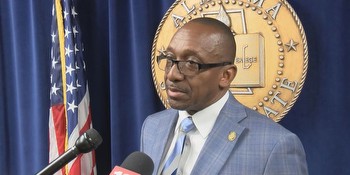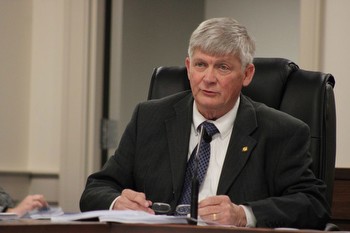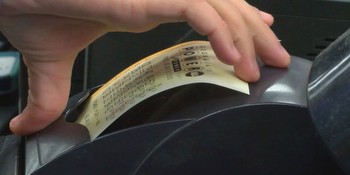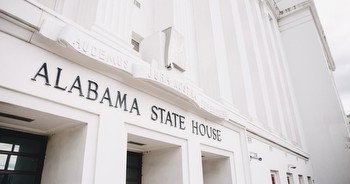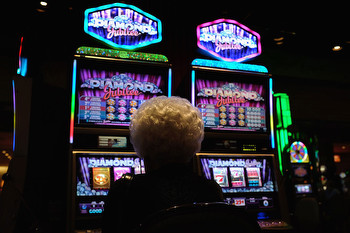How to stop a gambling bill
Think of all the issues the Alabama Legislature had us vote on over the last 10 years.
In 2014, it was a measure to ban foreign laws in the state. Not because the Canadian military was massing at the Tennessee border. It was a wink-wink-nod-nod version of a failed proposal to ban Shariah law in the state two years earlier.
Legislators that year also asked voters to nullify any international treaty regulating firearms in the state. Now, I’d be fine with handing the state’s gun policy over to Ottawa, in light our leaders’ childish irresponsibility with firearms. But I doubt Canada has any interest, and in any event, Alabama can’t conduct its own foreign policy.
And in 2020, lawmakers demanded we allow people to carry firearms into houses of worship. Because if there’s anything a place of peace needs, it’s a paranoid soul with a gun and an inflated sense of their shooting accuracy.
So we got to vote on these meaningless-to-dangerous ideas. But funding our underfunded schools? Improving our poor health outcomes? Never came close to the ballot. When it comes to serious issues, you must defer to the wisdom of those who think Mongolia is coming for their firearms.
And so it is with gambling. It’s a critical issue for law enforcement and many local communities. If we’re going to have it, we’re going to need to hold an election.
But the chances of that look dim.
It’s not for a lack of trying. The Alabama House of Representatives passed a comprehensive bill in February that would create a lottery and establish casino gaming at dog tracks and sports wagering in the state. It would also create a state commission to regulate gambling and direct the governor to enter a compact with the Poarch Band of Creek Indians, who run casinos in Atmore, Montgomery and Wetumpka. The money generated would go to education and state programs, with lawmakers having discretion to put money where they think it’s needed.
To be clear, I don’t like gambling. It’s terrible public policy that preys on the poor and doesn’t deliver adequate revenue. It will discourage lawmakers from doing anything about our regressive tax system.
But I hate it when democratic elections get overturned. Voters in Macon and Greene counties in the early 2000s authorized local casinos in the hopes of creating jobs. The all-white Alabama Supreme Court invalidated the will of those mostly-Black communities with some highly questionable interpretations of what voters intended.
Whatever my feelings about the issue, it’s what the people in those areas felt was best for them. The House package would, at a minimum, respect their judgments.
But the Senate’s revisions to the lower chamber’s proposal look less like a gambling plan and more like a bottle of poison pills.
The upper chamber’s proposal would keep only the lottery provision and the compact with the Poarch Band.
Sports wagering? Gone. Casino gambling? Not at areas under state jurisdiction. Dog tracks like VictoryLand and Greene County Entertainment — located in Macon and Greene counties — could only offer historic horse racing machines. That could give an edge to the Poarch Band if a compact gave them slot machines and table games.
The Senate plan also locks spending into education, the General Fund and roadwork. Lawmakers’ ability to put money where it’s needed would be constrained. It also drops a provision that would have funded something like Medicaid expansion.
The Senate proposal also gives a newly created Gaming Commission the power to tax gambling facilities at different rates (between 20% and 28%). To decide who pays more and who pays less, the commission could consider crime in an area, police calls and “any other factor deemed relevant by the commission.”
That’s a lot of subjectivity for taxation, an issue that typically chokes our leaders with rage. It all but guarantees lawsuits.
And it sets the election date for the package not in November, when turnout will be high, but on Sept. 10, when it won’t. The 1999 lottery proposal failed in no small part because the election took place in October.
Senate Republicans seem determined to alienate House Democrats, who provided the votes to get the gambling package through the lower chamber in February. Losing Medicaid expansion is enough to do that. But limiting the machines the dog tracks can have will also tick off key Democrats in the chamber.
Nor does the Senate seem interested in luring the House’s anti-gambling Republicans. If you lose the 27 Democratic votes that passed the amendment (and you’ve already lost one with former Rep. John Rogers’ resignation), you need to pick up about 18 or 19 Republicans. That would require a lot of arm-twisting from Alabama House Speaker Nathaniel Ledbetter, a man not known for telling people to yell uncle. And it would require crossing the powerful Alabama Farmers Federation, which has made its opposition to gambling clear.
It shouldn’t be this hard to address the issue. Polls show a high demand for a state lottery. The legal uncertainty around the dog tracks puts a significant employer in limbo.
When legislators really want to pass something, the House and Senate talk to each other through the process. That’s why economic incentives run like The Flash through the Legislature. That’s why we have a voucher-like law in place.
But the House and Senate aren’t talking about gambling. And with gerrymandering and racially polarized voting, popular opinion in Alabama matters far less to policy outcomes than the views of lobbyists and the dyspepsia of a few senators.
A state that had a responsive government would not hesitate to allow a vote on an issue with broad popular support.
But we don’t have a responsive government. We have a government designed to indulge the whims of the powerful. They consider gambling too important to trust to the citizens of the state. We’re only allowed to vote on guns and fantasies.








